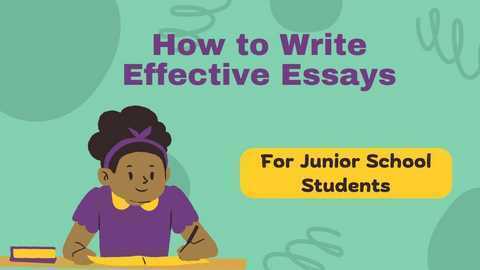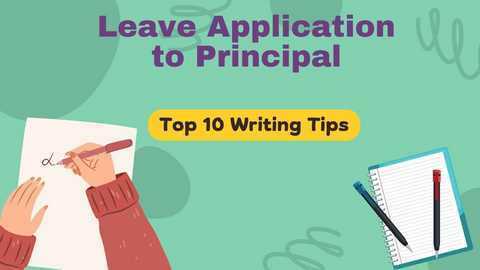Mastering essay writing is an essential skill for senior school students.
Essays are a fundamental way to develop and convey ideas, engage with the material, and showcase critical thinking skills.
However, essay writing can be a challenging task for many students, and it is not uncommon to feel overwhelmed by the prospect of writing an essay.
But, utilizing the right tools and applying proper skills, anyone can master the art of essay writing.
In this article, we will discuss the top ten tips for senior school students to excel at essay writing.
Mastering Essay Writing: Top 10 Tips for Senior School Students
Here are best 10 tips for senior school students to excel in essay writing.
1. Understanding the Prompt
Understanding the prompt correctly is the first step in writing an essay .
A prompt is a question or statement that provides the topic or subject matter for an essay.
Understanding the prompt is crucial as it gives you a direction to focus your research and writing efforts.
To understand the prompt, read it carefully, if possible multiple times and make sure you realize what it is asking.
Some prompts may have multiple parts or require you to compare and contrast ideas or events.
Understanding the prompt is also essential to ensure that your essay is relevant and on-topic.
For example, suppose the prompt is, “Discuss the impact of social media on interpersonal relationships.”
In that case, it is vital to focus on social media’s effects and not to stray from the topic by discussing unrelated issues like the history of social media or the latest trends in fashion.
2. Plan and Organize Your Essay
Planning and organizing your essay is the next step in mastering essay writing.
This process involves brainstorming, outlining, and creating a structure for your essay.
Start by brainstorming ideas for your essay, making sure they relate to the prompt.
Once you have several ideas, create an outline that organizes your thoughts into a logical order.
Your essay should have an introduction, body, and conclusion.
The introduction should hook the reader’s attention and provide a thesis statement that states the main argument of your essay.
The body should have several paragraphs that each address a single point and provide proof to support your claim.
Finally, conclude the essay with a strong conclusion and include summary of the main points of your essay by providing a final statement.
For example, let’s say you are writing an essay on “The Importance of Volunteering.” Your outline may look like this:
1. Introduction
- Hook: Start with an anecdote or statistic that illustrates the importance of volunteering.
- Thesis statement: Explain why volunteering is important and what the essay will discuss.
2. Body
- Paragraph 1: Discuss how volunteering helps the community.
- Paragraph 2: Explain how volunteering benefits the individual.
- Paragraph 3: Address common objections to volunteering and counter them.
3. Conclusion
- Summarize the main points of the essay.
- Provide a final statement on the importance of volunteering.
3. Use Reliable Sources
Using reliable sources is crucial in essay writing.
Your essay should be based on thorough research and credible evidence like academic journals, books, and reputable websites to support your point of view.
Avoid using sources like Wikipedia, which may not be reliable or accurate.
When using sources, it is essential to cite them correctly.
Citing sources not only acknowledges the work of others but also helps to support your claim by providing evidence.
For example, suppose you are writing an essay on the “Causes and Effects of Climate Change.”
In that case, you can use sources like the Intergovernmental Panel on Climate Change (IPCC), academic journals, and reputable websites like NASA’s Climate Change website.
4. Revise and Edit Your Essay
Once you have written your essay, it is essential to revise and edit it.
Revision involves re-reading your essay and making changes to improve its coherence, clarity, and argument.
Editing involves checking for spelling, grammar, and punctuation errors.
Both revision and editing are critical as they help to refine your essay and make it more effective.
When revising your essay, start by reading it aloud.
This helps you to hear how the essay sounds and identify any awkward or unclear sentences.
Make sure that your essay flows logically and that each paragraph connects to the next.
Check that your statement is clear and that your evidence supports your arguments.
When editing your essay, use a spell-checker to catch any spelling errors.
However, it should be noted that most of the spell-checkers may not spot all inaccuracies, especially if you have used a homophone like “their” and “there.”
Check for grammar and punctuation errors by reading your essay carefully.
If you are not confident in your editing skills, consider asking a friend or family member to help you.
5. Practice, Practice, Practice
The key to mastering essay writing is to practice, practice, practice.
Writing essays is a skill that improves with practice, and the more you write, the better you will become.
Set aside time each week to write an essay or practice writing paragraphs on different topics.
When you have finished writing an essay, get feedback from your teacher, tutor, or a peer.
Ask them to review your essay and provide constructive feedback on how to improve it.
This feedback can help you identify areas where you need to improve and develop your writing skills further.
6. Use Active Voice
Using active voice is an effective way to make your writing more engaging and easier to understand.
In active voice, the subject of the sentence performs the action, while in passive voice, the subject receives the action.
Active voice makes your writing more direct and easier to follow.
For example, instead of writing “The ball was thrown by Tom,” write “Tom threw the ball.”
7. Vary Your Sentence Structure
Varying your sentence structure is an effective way to keep your writing interesting and engaging.
Avoid using the same sentence structure repeatedly, as this can make your writing monotonous.
Instead, use a combination of simple, compound, and complex sentences.
A simple sentence has one independent clause, while a compound sentence has two or more independent clauses joined by a conjunction.
A complex sentence has one independent clause and one or more dependent clauses.
For example, let’s say you are writing an essay on “The Benefits of Exercise.” Instead of using the same sentence structure repeatedly, you can vary your sentence structure to make your writing more interesting.
Here is an example of how you can vary your sentence structure:
Simple sentence: Exercise helps to reduce stress.
Compound sentence: Exercise helps to reduce stress, and it also improves mood.
Complex sentence: Although exercise can be challenging, it helps to reduce stress and improve mood.
8. Use Transitions
Using transitions is an effective way to make your writing more cohesive and easier to follow.
Transitions are words or phrases that connect ideas between sentences and paragraphs.
They help to create a smooth flow of ideas and make your writing more organized.
Examples of transitions include “furthermore,” “in addition,” “on the other hand,” and “therefore.”
For example, let’s say you are writing an essay on “The Effects of Social Media on Mental Health.”
To make your writing more organized and cohesive, you can use transitions to connect your ideas.
Here is an example of how you can use transitions:
Paragraph 1: Introduction
Paragraph 2: The negative effects of social media on mental health, such as cyberbullying and social isolation.
Transition: However,
Paragraph 3: The positive effects of social media on mental health, such as social support and increased awareness of mental health issues.
Transition: Furthermore,
Paragraph 4: The role of social media companies in promoting mental health and providing resources for those struggling with mental health issues.
Paragraph 5: Conclusion
9. Use Concluding Sentences
A concluding sentence is a sentence that wraps up a paragraph or section and connects it to the main idea of the essay.
A concluding sentence helps to summarize the main points of the paragraph and transition to the next paragraph.
It is important to include concluding sentences in your essay to make it more organized and easy to follow.
For example, let’s say you are writing an essay on “The Importance of Education.”
In the body paragraph discussing the benefits of education, you can use a concluding sentence to summarize the main points and transition to the next paragraph. Here is an example of a concluding sentence:
“Overall, education has a multitude of benefits, from improving employment opportunities to enhancing critical thinking skills and promoting personal growth.”
10. Use Specific Examples and Evidence
Using specific examples and evidence is an effective way to support your arguments and make your writing more persuasive.
When you make a claim in your essay, it is important to support it with evidence from reliable sources.
Using specific examples and evidence also helps to make your writing more engaging and interesting.
For example, let’s say you are writing an essay on “The Impact of Climate Change on the Great Barrier Reef.”
To support your argument that climate change is causing coral bleaching, you can use specific examples and evidence from reliable sources.
Here is an example of how you can use specific examples and evidence:
“According to a study by the Australian Institute of Marine Science, the Great Barrier Reef has lost more than 50% of its coral cover in the past 30 years due to climate change.
In addition, rising sea temperatures have caused coral bleaching, which occurs when the algae that live in the coral are expelled, leading to the death of the coral.
This was observed during the 2016 and 2017 bleaching events, which affected 91% and 93% of the Great Barrier Reef, respectively.”
By using specific examples and evidence, you can support your arguments and make your essay more persuasive and convincing.
Conclusion
Mastering essay writing is a fundamental skill for senior school students.
By following the tips discussed in this article, you can develop your essay writing skills and become a more effective writer.
Remember, essay writing is a skill that takes time and effort to develop, but with practice, anyone can become a master of the art.




![How to Write Leave Application for Office [8 Practical Tips]](/wp-content/uploads/2023/02/How-to-Write-Leave-letter-for-office.jpg)